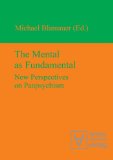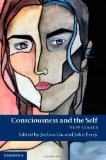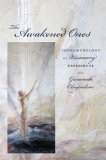February 29, 2012

A User’s Guide to Thought and Meaning by Ray Jackendoff is now available in hardcover from Oxford University Press. The kindle ed. was released in January, as previously announced here.
(amazon.co.uk)
Book description from the publisher:
Hailed as a “masterpiece” (Nature) and as “the most important book in the sciences of language to have appeared in many years” (Steven Pinker), Ray Jackendoff’s Foundations of Language was widely acclaimed as a landmark work of scholarship that radically overturned our understanding of how language, the brain, and perception intermesh.
A User’s Guide to Thought and Meaning is Jackendoff’s most important book since his groundbreaking Foundations of Language. Written with an informality that belies the originality of its insights, it presents a radical new account of the relation between language, meaning, rationality, perception, consciousness, and thought, and, extraordinarily, does this in terms a non-specialist will grasp with ease. Jackendoff starts out by looking at languages and what the meanings of words and sentences actually do. Finding meanings to be more adaptive and complicated than they’re commonly given credit for, he is led to some basic questions: how do we perceive and act in the world? How do we talk about it? And how can the collection of neurons in the brain give rise to conscious experience? He shows that the organization of language, thought, and perception does not look much like the way we experience things, and that only a small part of what the brain does is conscious. He concludes that thought and meaning must be almost completely unconscious. What we experience as rational conscious thought–which we prize as setting us apart from the animals–in fact rides on a foundation of unconscious intuition. Rationality amounts to intuition enhanced by language.
Ray Jackendoff’s profound and arresting account will appeal to everyone interested in the workings of the mind, in how language links to the world, and in what understanding these means for the way we experience our lives.
Google books preview:
See also: Video of author speaking on “Language, Meaning and Rational Thought” (11/10/11)
Comments (1)
- cognitive science,consciousness,language
February 22, 2012

Varieties of Presence by Alva Noë (Harvard University Press, 2012)
(amazon.co.uk)
Product description from the publisher:
The world shows up for us—it is present in our thought and perception. But, as Alva Noë contends in his latest exploration of the problem of consciousness, it doesn’t show up for free. The world is not simply available; it is achieved rather than given. As with a painting in a gallery, the world has no meaning—no presence to be experienced—apart from our able engagement with it. We must show up, too, and bring along what knowledge and skills we’ve cultivated. This means that education, skills acquisition, and technology can expand the world’s availability to us and transform our consciousness.
Although deeply philosophical, Varieties of Presence is nurtured by collaboration with scientists and artists. Cognitive science, dance, and performance art as well as Kant and Wittgenstein inform this literary and personal work of scholarship intended no less for artists and art theorists, psychologists, cognitive scientists, and anthropologists than for philosophers.
Noë rejects the traditional representational theory of mind and its companion internalism, dismissing outright the notion that conceptual knowledge is radically distinct from other forms of practical ability or know-how. For him, perceptual presence and thought presence are species of the same genus. Both are varieties of exploration through which we achieve contact with the world. Forceful reflections on the nature of understanding, as well as substantial examination of the perceptual experience of pictures and what they depict or model are included in this far-ranging discussion.
Comments (0)
- consciousness,new books
February 15, 2012

The Mental as Fundamental: New Perspectives on Panpsychism ed. by Michael Blamauer (Ontos Verlag)
(amazon.co.uk – 16 July 2011)
Book description from the publisher:
A revival of panpsychistic considerations of the mind’s place in nature has recently enriched the debate on the mind-body problem in the contemporary philosophy of the mind. The essays assembled in the present collection aim to supply a positive contribution to these considerations, providing new perspectives on panpsychism by shedding new light on its arguments and impacts, as well as on its problems and theoretical challenges. Panpsychism is discussed as a position that understands consciousness as a truly fundamental feature of our reality—not only with respect to the human species, but also with respect to the evolution of the universe as such.
Google books preview:
See also: Notre Dame Philosophical Reviews, PhilPapers on panpsychism
Comments (0)
- consciousness,new books,philosophy of mind
January 19, 2012

Consciousness and the Self: New Essays ed. by JeeLoo Liu and John Perry (Cambridge University Press, 2012)
(amazon.co.uk – 17 Nov 2011)
Product description from the publisher:
‘I never can catch myself at any time without a perception, and never can observe any thing but the perception.’ These famous words of David Hume, on his inability to perceive the self, set the stage for JeeLoo Liu and John Perry’s collection of essays on self-awareness and self-knowledge. This volume connects recent scientific studies on consciousness with the traditional issues about the self explored by Descartes, Locke and Hume. Experts in the field offer contrasting perspectives on matters such as the relation between consciousness and self-awareness, the notion of personhood and the epistemic access to one’s own thoughts, desires or attitudes. The volume will be of interest to philosophers, psychologists, neuroscientists, cognitive scientists and others working on the central topics of consciousness and the self.
Table of Contents
Introduction: consciousness and the self
1. Awareness and identification of self – David Rosenthal
2. Self-representationalism and the explanatory gap – Uriah Kriegel
3. Thinking about the self – John Perry
4. Ordinary self-consciousness – Lucy O’Brien
5. Waiting for the self – Jesse Prinz
6. I think I think, therefore I am – I think: skeptical doubts about self-knowledge – Fred Dretske
7. Knowing what I want – Alex Byrne
8. Self-ignorance – Eric Schwitzgebel
9. Personhood and consciousness – Sydney Shoemaker
10. My non-narrative, non-forensic Dasein: the first and second self – Owen Flanagan.
Comments (0)
- consciousness,new books,self
January 18, 2012

The Awakened Ones: Phenomenology of Visionary Experience by Gananath Obeyesekere (Columbia University Press)
(amazon.co.uk – 1 Feb)
Product description from the publisher:
While a rational consciousness grasps many truths, Gananath Obeyesekere believes an even richer knowledge is possible through a bold confrontation with the stuff of visions and dreams. Spanning both Buddhist and European forms of visionary experience, he fearlessly pursues the symbolic, nonrational depths of such phenomena, reawakening the intuitive, creative impulses that power greater understanding.
Throughout his career, Obeyesekere has combined psychoanalysis and anthropology to illuminate the relationship between personal symbolism and religious experience. In this book, he begins with Buddha’s visionary trances wherein, over the course of four hours, he witnesses hundreds of thousands of his past births and eons of world evolution, renewal, and disappearance. He then connects this fracturing of empirical and visionary time to the realm of space, considering the experience of a female Christian penitent, who stares devotedly at a tiny crucifix only to see the space around it expand to mirror Christ’s suffering. Obeyesekere follows the unconscious motivations underlying rapture, the fantastical consumption of Christ’s body and blood, and body mutilation and levitation, bridging medieval Catholicism and the movements of early modern thought as reflected in William Blake’s artistic visions and poetic dreams. He develops the term “dream-ego” through a discussion of visionary journeys, Carl Jung’s and Sigmund Freud’s scientific dreaming, and the cosmic and erotic dream-visions of New Age virtuosos, and he defines the parameters of a visionary mode of knowledge that provides a more elastic understanding of truth. A career-culminating work, this volume translates the epistemology of Hindu and Buddhist thinkers for western audiences while revitalizing western philosophical and scientific inquiry.
Comments (0)
- consciousness,culture,new books







